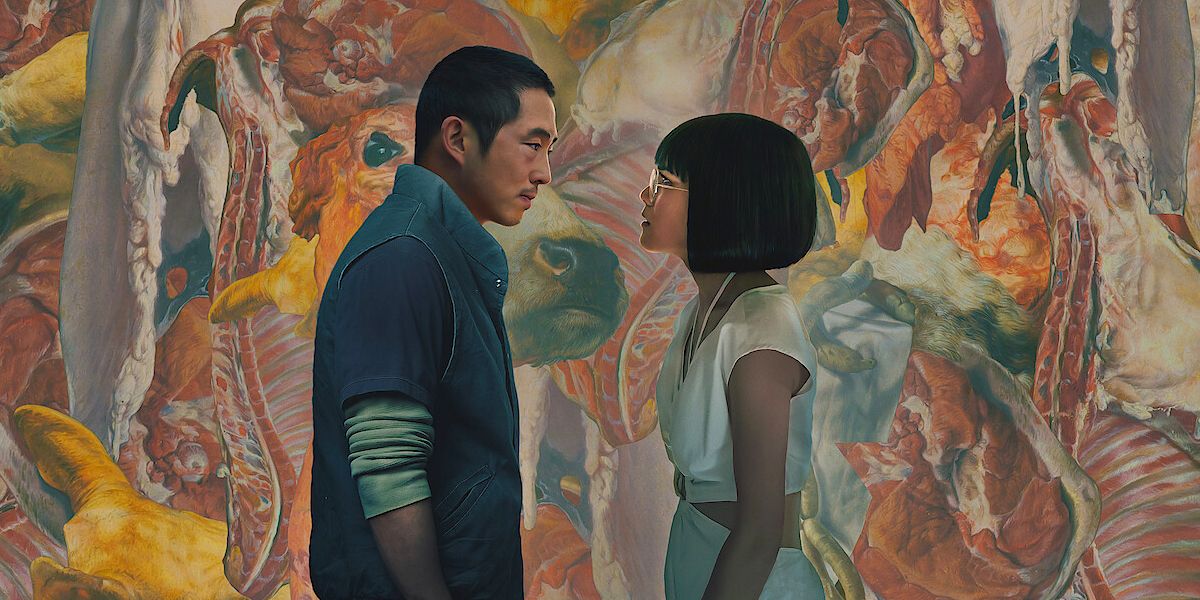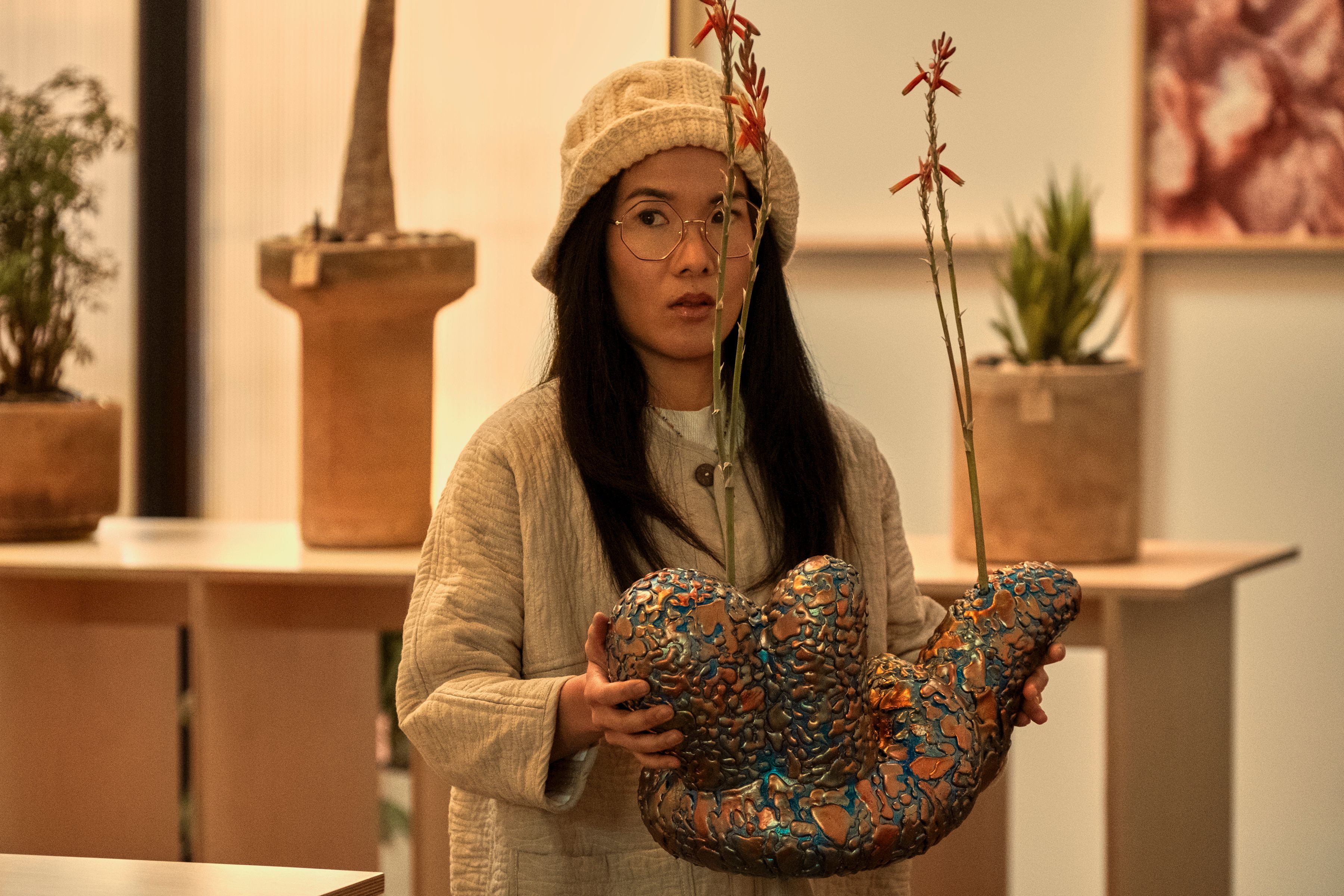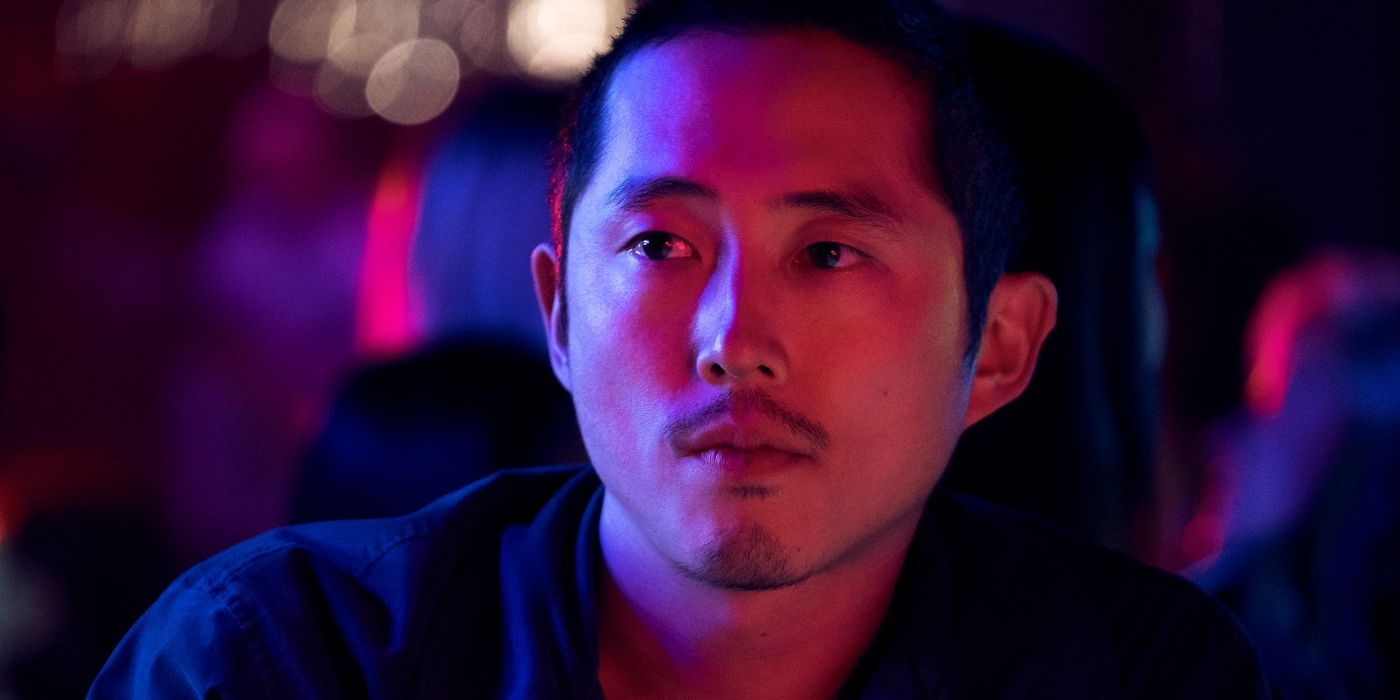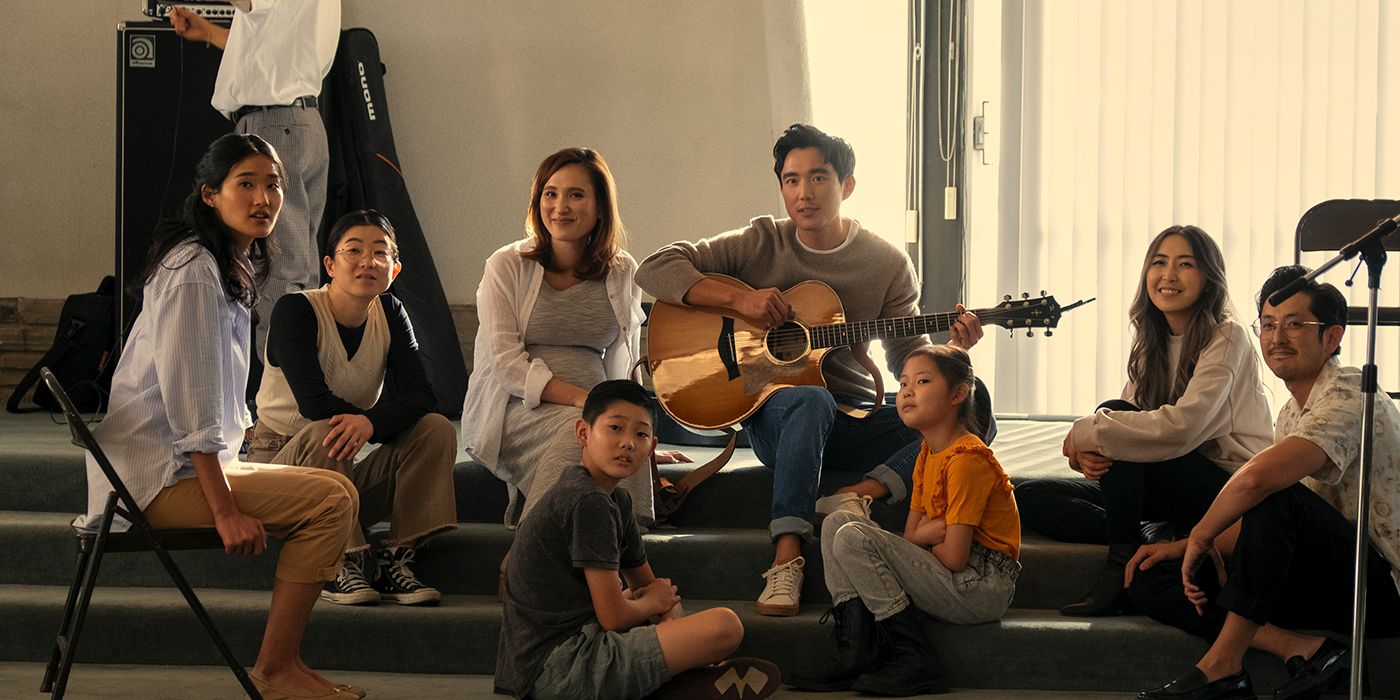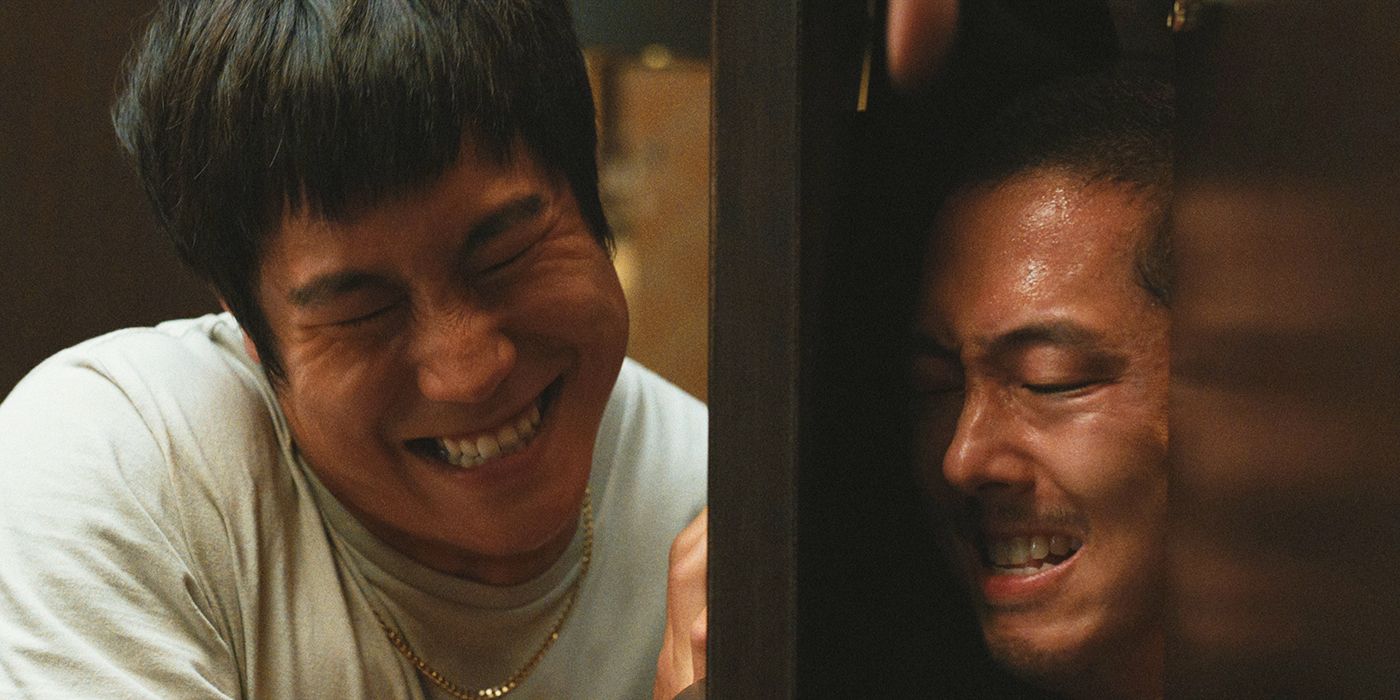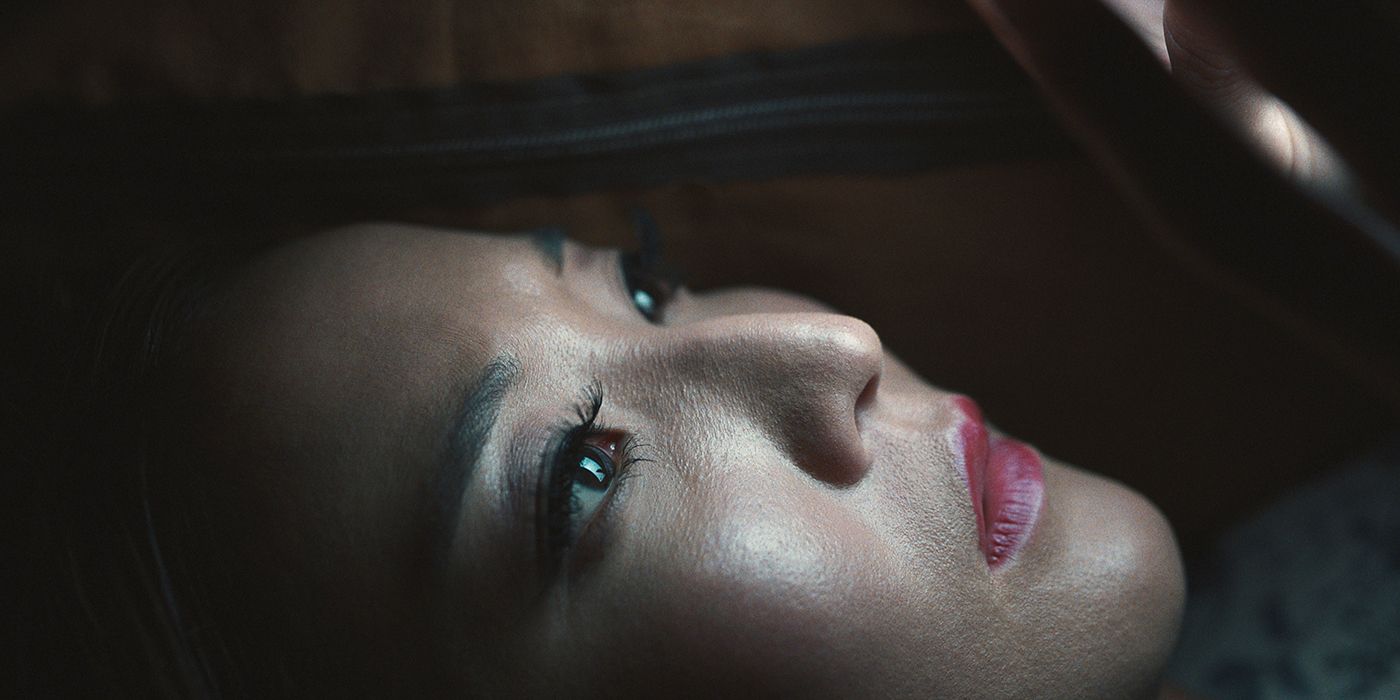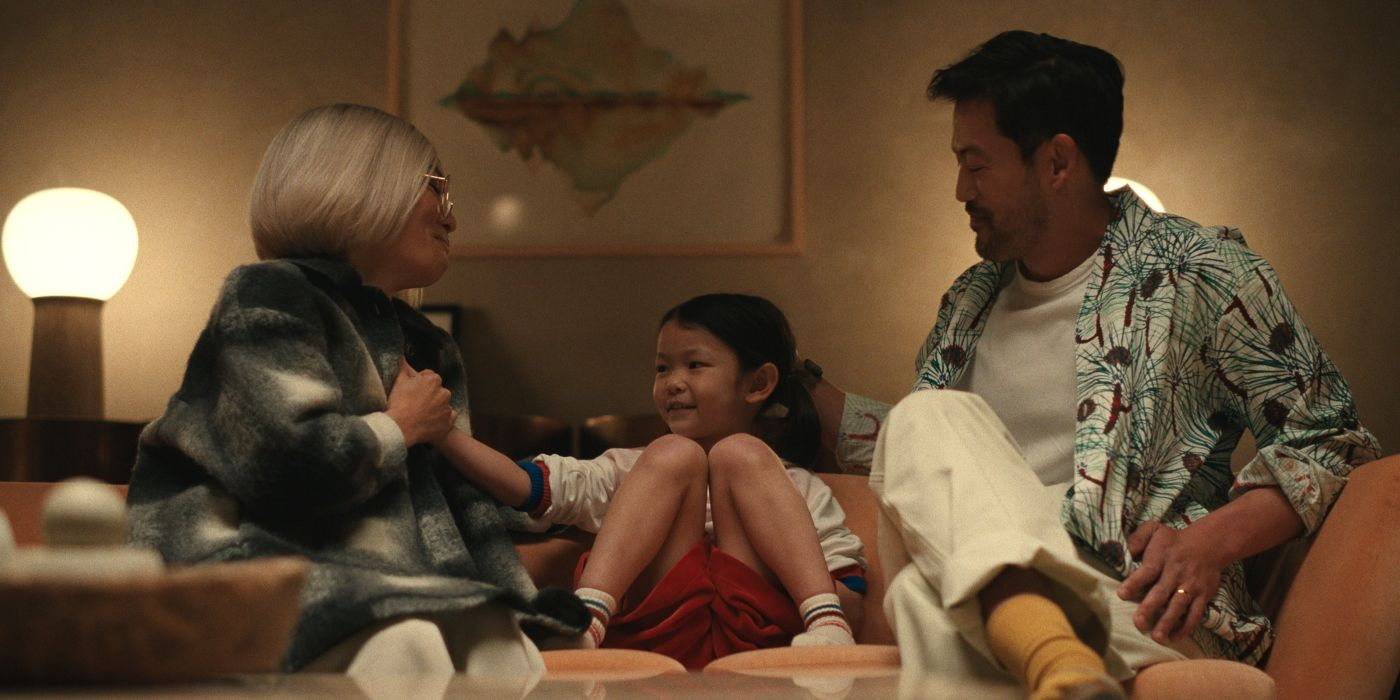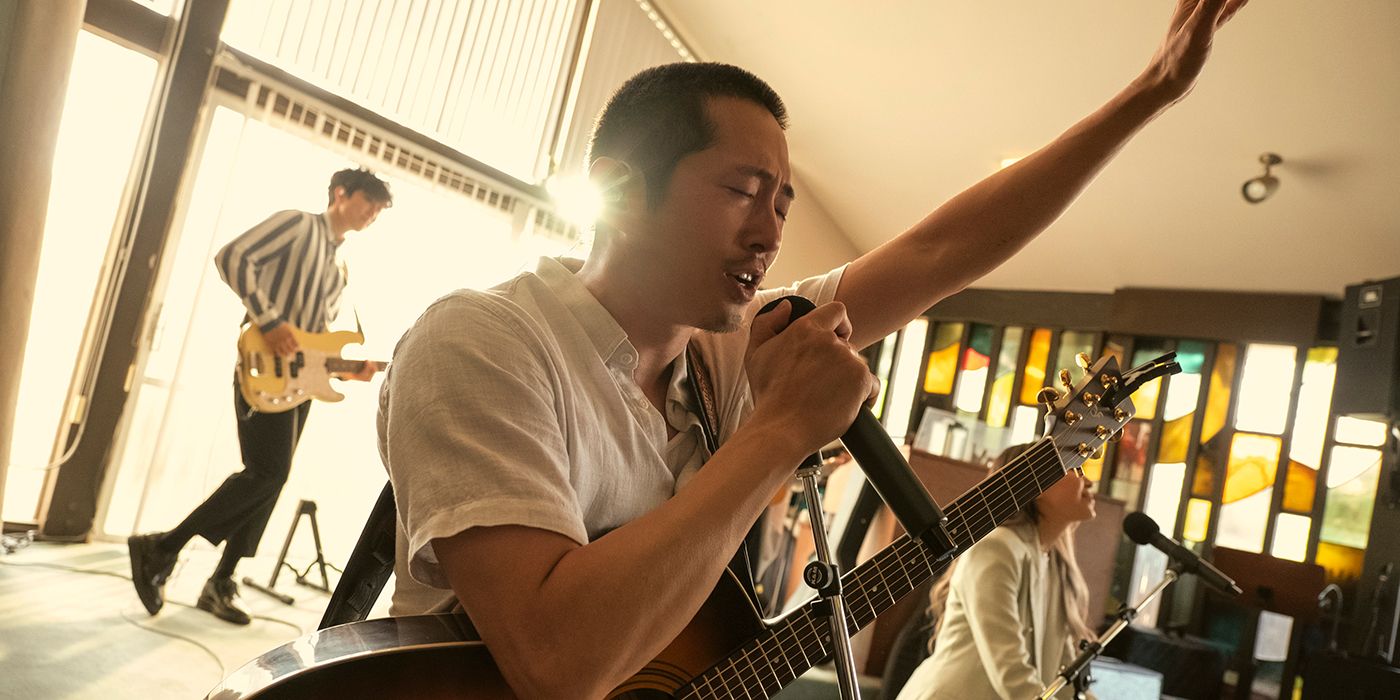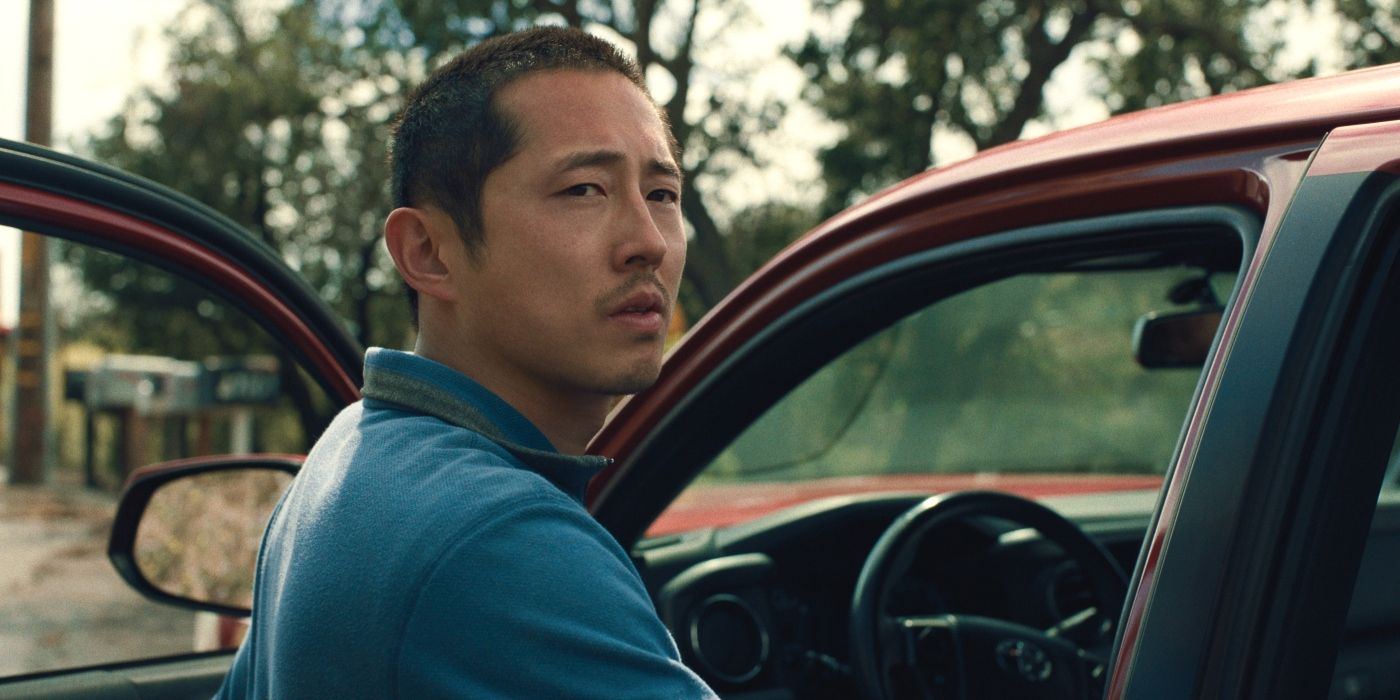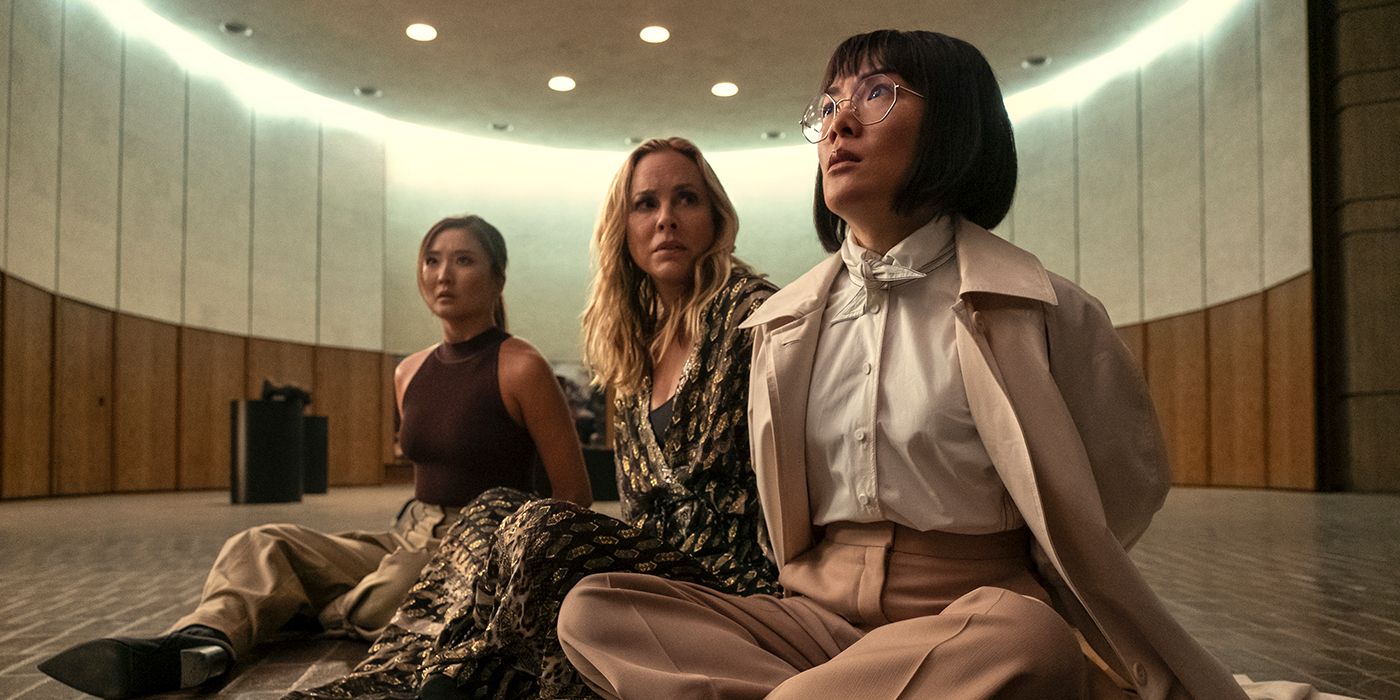Editor's Note: The following contains minor spoilers from Season 1 of Beef.Netflix's new show Beef features a tantalizing story of revenge, family, and mental health, diving into these nuanced themes with a comedic overlay. Not only does the stellar cast and witty dialogue support this exploration, but the show draws upon the ideas of filmmakers, philosophers, and literary figures to capture the essence of each storyline. The title of each episode seems bizarre and random, but they are actually brief segments of larger quotes that tackle with specific concepts highlighted by the show.
Episode 1, "The Birds Don't Sing, They Screech in Pain"
Episode 1 introduces us to Amy (Ali Wong) and Danny (Steven Yeun), two completely ordinary citizens that are from distinctly different social classes. From the beginning of the show, their lack of personal fulfillment is highlighted, despite their seemingly typical lives. The title quote is taken from German film director Werner Herzog’s documentary Burden of Dreams, outlining how despite their appearances and attitudes, both protagonists are suffering deeply in ways they are only able to articulate in the final episode.
Episode 2, "The Rapture of Being Alive"
Episode 2 is where Amy and Danny start fleshing out their beef and thirst for revenge amid their inherent isolation in life. Drowning in the humdrum, they are driven by their repressed emotions and hidden instincts. As such, the preoccupation with vengeance incites their primal self and essentially channels their "rapture of being alive," a segment of a quote from American writer Joseph Campbell's interview with Bill Moyers where they discuss the titular meaning of life.
Episode 3, "I Am Inhabited by a Cry"
Both storylines in episode 3 involve embracing a new way of life but also an act of betrayal: backstabbing. Amy diligently follows the advice of her couple's therapist to improve her relationship with her husband, George (Joseph Lee). But despite her love for him, she advances her online affair with Paul (Young Mazino), and they eventually end up meeting in the episode. On the other hand, Danny is seen "inhabited by a cry," a quote from Sylvia Plath's poem Elm, where he breaks down in church due to the overwhelming internal darkness he tackles with. Despite being accepted by the church, we learn he is attempting to con them by pocketing money from renovations. The amalgamation of warmth and treachery lends itself to a sense of nauseating fear, corroborated by the closing soundtrack "Drive".
Episode 4, "Just Not All at the Same Time"
Episode 4 features Amy's transformation where she becomes more carefree as she smokes in the hotel room with Paul and dyes her hair platinum blonde. It's as if the transformation will directly transform her own inner turmoil but throughout the episode the lifelessness persists in her demeanor. The title quote parallels what Amy proclaims during her talk show. The full quote is "You can have it all, just not at the same time" by feminist writer Betty Friedman; Amy ignores the second clause of the statement despite her struggle to balance her family, career, and personal lives.
Episode 5, "Such Inward Secret Creatures"
Episode 5 exposes ulterior motives and secrets that motivate multiple characters as they are led by their egos, this includes: Amy's affair, Paul's affair, Fumi (Patti Yasutake) being broke, and Naomi's (Ashley Park) attempt at treachery. The motivations of each of the characters are driven by pride, facilitating their ability to create an illusory world around them to avoid reality. As such, the superficiality of these motives is corroborated by the title quote from Iris Murdoch's novel The Sea, The Sea, "We are all such shocking poseurs, so good at inflating the importance of what we think we value."
Episode 6, "We Draw a Magic Circle"
Episode 6 is all about amends and reconciliations; it centers around the light and positive tones, where Amy and Danny's beef is laid to rest, Paul cuts off his affair, and Danny reconciles with Paul. But darkness still enshrouds the story as many secrets remain unrevealed and Amy refuses to take accountability for her contribution to the issues in her life, namely the road rage incident and Fumi's accident during the robbery. Her denial is represented by the title quote from Ingmar Bergman’s film Through a Glass Darkly, exploring the concept of entrenching oneself in a "magic circle" of systematic lies and justifications to avoid facing the root of why their life is falling apart, which is usually themselves.
Episode 7, "I Am a Cage"
Set eight months later, both protagonists seemed to be thriving in Episode 7 until past decisions catch up to them, where Amy's affair costs her family and Danny's poorly done wiring costs his family's potential home. They are trapped by their past decisions, leaving them emptier than they were before. Frank Kafka's quote "I am a cage, in search for a bird," describes a collective purpose for humans to find meaning in their lives, as such, once Amy and Danny lose their aspirations, they deteriorate into empty vessels and grasp for any direction they can find.
Episode 8, "The Drama of Original Choice"
Episode 8 delves into Amy and Danny's childhoods, particularly moments that had defined them and the darker scenes they were forced to witness including Amy seeing her dad's affair, her imaginary but terrifying witch, and Danny being bullied. The reappearance of the witch in Amy's life overtly links her childhood, specifically her dad's affair, to her present. There's a sense of their upbringing predetermining their present choices and fate; an idea conveyed by feminist author Simone de Beauvoir.
Episode 9, "The Great Fabricator"
Episode 9 capitalizes on darker themes like a kidnapping, another attempted robbery, a hostage situation, a grisly death, and loss. As Amy loses her daughter and Danny loses his brother, both are finally prepared to face the reality they had created for themselves. These core relationships formed the foundation of the false reality they built, obstinately convincing themselves that they were coping and thriving. The concept of attachment being "the great fabricator" is conveyed by Simone Weil, and as such we hope that these protagonists are able to take accountability and become detached from their former delusions.
Episode 10, "Figures of Light"
The final episode's cathartic release experienced by both characters during their hysterical near-death experience epitomizes how Amy and Danny finally released their rage and connect with each other as they truly are. Following Carl Jung's advice to tap into their internal darkness to move forward instead of relying on "figures of light", both characters divulge their fears, struggles, and innermost thoughts, catalyzing their path to healing and living.

